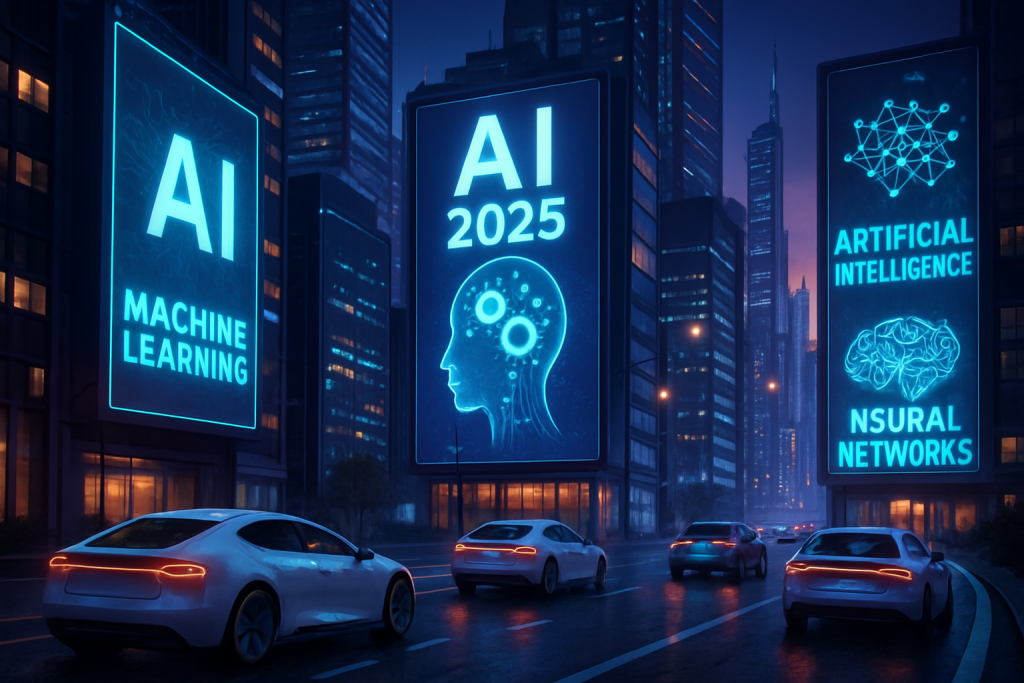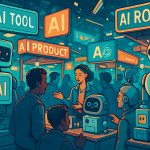The year is 2025. Self-driving cars are (mostly) a reality. AI-powered personal assistants are ubiquitous, and your fridge probably knows more about your dietary habits than you do. But behind the scenes, a silent war is raging: the AI arms race. And this week, at the Axios AI+ Summit, White House AI advisor Sriram Krishnan dropped a bombshell, or at least, a strongly worded policy statement: for the US, success in this race against China will be measured primarily by market share.
Think of it like this: it’s not enough to just invent the best AI. We need to own the market for it. Krishnan, a key advisor to President Trump on AI policy, essentially said the quiet part out loud: America’s AI dominance hinges on commercially successful AI technologies. Forget just racking up research papers or claiming the highest teraflop count; it’s about who’s selling the most AI, and who’s raking in the most dough.
This isn’t exactly a new sentiment. Back in July, President Trump declared the US would do “whatever it takes” to lead in AI. But Krishnan’s comments add crucial context. It’s a strategic pivot, prioritizing economic metrics over purely technological ones. Think less Apollo program, more Apple. Less Sputnik, more Spotify. The goal isn’t just to reach the moon; it’s to sell moon-viewing packages to the masses.
But what does this really mean?
For starters, it signals a potential shift in how the government funds and supports AI research. Expect to see more emphasis on projects with clear commercial applications, perhaps at the expense of more fundamental, blue-sky research. The government might favor companies that are aggressively commercializing AI, offering them preferential treatment in terms of funding, regulation, or even access to data. It’s a high-stakes game of capitalism, AI-style.
It also throws a spotlight on the rivalry with China. The US and China have been locked in a tech cold war for years, and AI is arguably the most crucial battleground. By focusing on market share, the US is essentially acknowledging that this isn’t just about technological superiority; it’s about economic power. It’s about who controls the future of AI, and who reaps the rewards.
The “Woke” AI Controversy
The Axios summit wasn’t just about market share. Krishnan also addressed a recent executive order targeting what he termed “woke” AI. This initiative, aimed at banning federally funded AI that doesn’t align with certain ideological frameworks, is sparking controversy. The stated goal is to promote “truth-seeking” systems, but critics argue it’s a thinly veiled attempt to politicize AI and stifle dissenting viewpoints. Imagine a future where AI algorithms are vetted not just for accuracy, but for their political correctness according to the current administration. It’s a slippery slope that could lead to biased AI systems and a chilling effect on innovation.
This raises a crucial question: who gets to define “truth” in the age of AI? Is it the government? The tech companies? Or should AI be allowed to evolve organically, reflecting the diverse perspectives of the world? The implications are profound, potentially shaping everything from news feeds to criminal justice algorithms.
And speaking of the administration, Krishnan offered a surprising admission. When asked about President Trump’s personal use of AI tools, he confessed uncertainty, stating he wasn’t sure if the president even used them. It’s a curious detail, suggesting a potential disconnect between the administration’s ambitious AI agenda and the president’s own engagement with the technology. Perhaps the president prefers a good old-fashioned paper briefing to an AI-powered summary. Or maybe he’s just keeping his AI usage a closely guarded secret. We can only speculate.
The Ethical Quandary
Beyond the political maneuvering and economic calculations, there’s a deeper ethical dimension to this AI race. Focusing solely on market share risks overlooking the potential harms of AI, such as bias, job displacement, and privacy violations. If the primary goal is to sell as much AI as possible, there’s a danger that ethical considerations will take a backseat. We risk creating a world where AI is powerful and profitable, but also unfair and unjust.
Think about it: facial recognition technology that disproportionately misidentifies people of color; AI-powered hiring tools that perpetuate existing biases; autonomous weapons systems that make life-or-death decisions without human intervention. These are just some of the ethical challenges that we need to address as we develop and deploy AI. And if we’re not careful, the pursuit of market share could exacerbate these problems.
The tension between economic ambition and ethical responsibility is nothing new. We saw it with the Industrial Revolution, with the rise of the internet, and now we’re seeing it with AI. The key is to find a balance- to foster innovation and economic growth while also safeguarding our values and protecting the public interest. It’s a tall order, but it’s one that we can’t afford to ignore.
The Bottom Line
Krishnan’s remarks offer a glimpse into the US’s AI strategy: a focus on market dominance, a crackdown on “woke” AI, and a somewhat blurry picture of the president’s own AI usage. It’s a strategy that’s sure to be debated, dissected, and challenged in the months and years to come. The AI race is on, and the stakes are higher than ever. It’s not just about who invents the future; it’s about who controls it. And that control, according to the White House, will be measured in dollars and cents.
Discover more from Just Buzz
Subscribe to get the latest posts sent to your email.


